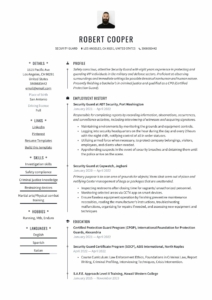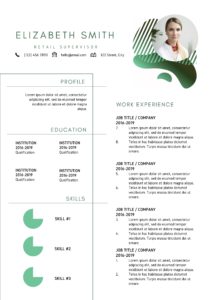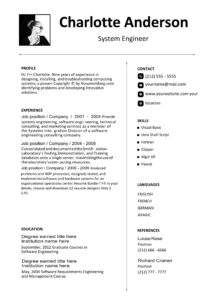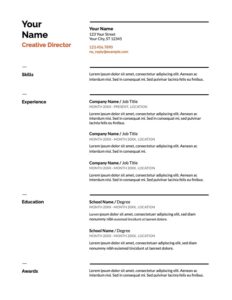One of those reflective moments that are unavoidable that revolve around our World of Work, which can be loosely categorized into four main scenarios:
1) Happy, but not being paid enough
2) Unhappy and not being paid enough
3) Unhappy and being paid enough
4) Happy and being paid enough.
The latter situation is least likely in most cases, and number two and three come with the daunting task of looking for another job. However, Point 1 will be discussed for today’s blog:
Situation: Happy but not being paid enough
Solution: Ask for a raise!
Requesting a Pay Raise
Yikes, this is Uncomfortable 101. However, the probability of getting the raise you feel you deserve is unlikely to transpire if you don’t ASK for it yourself.
According to research done by the smart people at the Wall Street Journal: “A new survey found that 70 percent of people who asked for a raise scored some increase in compensation, according to PayScale, the data company that conducted the poll of more than 160,000 workers.”
Now that we have the elephant in the room out in the open….how should you ask for a pay raise? In passing at the monthly office, lunch won’t do. Neither will a letter from nowhere ambushing your Boss increase your chances, either.
If you decide to skip the discussion phase and proceed straight to a formal written letter, first look at a few templates before hitting the send button.
One way to approach a Raise:
Prepping for Discussions
Before scheduling the conversation with your manager, ensure that you have these five essential ducks in a row:
1) Research
This is not the time to pick that number based on feeling or the dismal state of your bank balance.
Make sure you do your research regarding average pay rates in your industry regarding years of experience and qualifications. Websites like Glassdoor and PayScale can assist with numbers and percentages needed which shows your manager that you have exerted some effort which adds to the credibility of your request.
2) Timing
Timing is critical duck (to improve your chances for increased bucks). The week before the financial year-end report is due or the day after your manager returns from a stint in the hospital is not the time to put your salary aspirations on the line.
Also, if your work conduct over the past few months has been less than satisfactory or the company has just started with layoffs, the better option is to keep your head down and keep your job.
The best time to bring up compensation increases is when you have just nailed a new project, finalized an assignment with glowing reviews or when your annual performance review is a couple of months away.
3) Answer WHY before you ask HOW MUCH?
Features tell, but benefits sell. Being at the company for x amount of years, the fact that you are such a hard worker or the fact that clients love your guts are things you should never say when asking for a raise.
Achievements and personality traits will not even register on the salary raise barometer if you don’t back them up with quantifiable facts. Detailing the benefits to motivate the reason why you are requesting a hike in salary is vital to successfully negotiate your salary.
Write down your brag sheet and include numbers and time frames (based on real metrics of course) to add in the validity of your request.
4) Conversation Simulations
You would need a dry run to practice what you are going to say in that meeting room. Your number asked for should be clear, with valid supporting research based on the information gathering you have done as well as the points on your brag sheet.
Role play in front of the mirror or with a trusted friend or colleague.
5) Pushback Tactics
What if the manager says No? What if the manager offers an amount less than what I have asked for? What if the manager refers me to his manager?
These are the questions you need to be prepared for as remuneration meetings rarely pan out with you asking for a raise and the manager agreeing to it straight away.
If you receive pushback regarding the number, opt for a lesser amount now and a commitment to revisit the conversation in X months’ time.
For a resounding “No, not an option” kind of response, negotiate alternatives instead such as flexi-time or perhaps additional vacation days.
You could also offer a win-win suggestion: You will aim to increase your sales by x percent in the next six months and should you achieve this target, your salary will go up by x percent.
D-Day
Take hard copies of your research and brag sheet to the meeting for easy reference.
Confidence is key; entitlement is not. Your manager is not compiled to give you a raise, even if you feel you deserve one. Politely state your case and then negotiate (not agitate) if you need to.
The Write Stuff
Whether you are skipping out of the negotiation room after receiving the pay raise you wanted or walking out of there a little less chuffed because the number agreed upon was lower than expected, your next step should be to put pen to paper, or rather key to email.
A formal request for a pay raise should preferably be done within 24hours after your salary meeting. What you are aiming for is a written recollection of what was discussed, as well as nudging along the admin process a bit.
Your letter should contain five parts:
1) Introduction
Here you address the manager and briefly state what the meeting was about and when it took place.
“Dear Jim, I would like to thank you for affording me the time to discuss my request for a pay raise. As per our meeting held on X date, I thought it best to highlight the main points of our conversation”.
2) Motivation
“As you know, my decision to request a pay raise is based on research done regarding the average earnings of candidates with similar background and experience as myself, plus the major milestones I have achieved during the last 12 months under your guidance and direction”.
Then you list the average remuneration packages of at least two sources and then describe your five reasons (remember features and benefits) substantiating why you deserve the raise.
3) Agreement
In this section, you confirm the number discussed and any terms (if applicable) related to the pay raise.
“As per our discussed, I am truly grateful for the 3% increase you have agreed to, and you have my devoted commitment to doing everything in my power to increase my client base with five key accounts in the next six months”.
4) Next Steps
Remember to cc HR in on your email for logistical and record keeping purposes.
“Please advise regarding the next steps required from my side to formalize this process.”
5) Appreciation
Close off your letter with gratitude for the pay rise and the support your superior has given you up until now.
“Thank you for approving my request and furthermore your unequivocal support and mentorship.”
Raise granted.
Now what?
Well, I guess it’s time for you now to raise the bar…..




